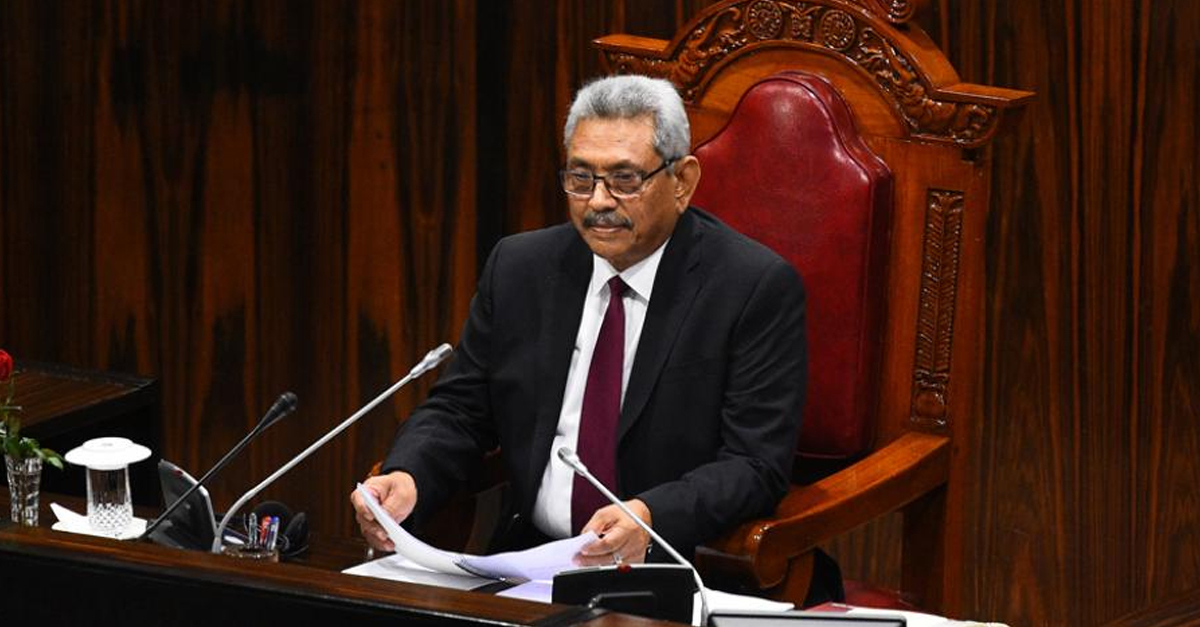
On August 20, at the first sitting of the 9th Parliament of Sri Lanka, President Gotabaya Rajapaksa delivered the ‘government policy speech’, which sets out the government’s plans for its term.
The Unifying Themes
The unifying themes in the government policy speech were fourfold:
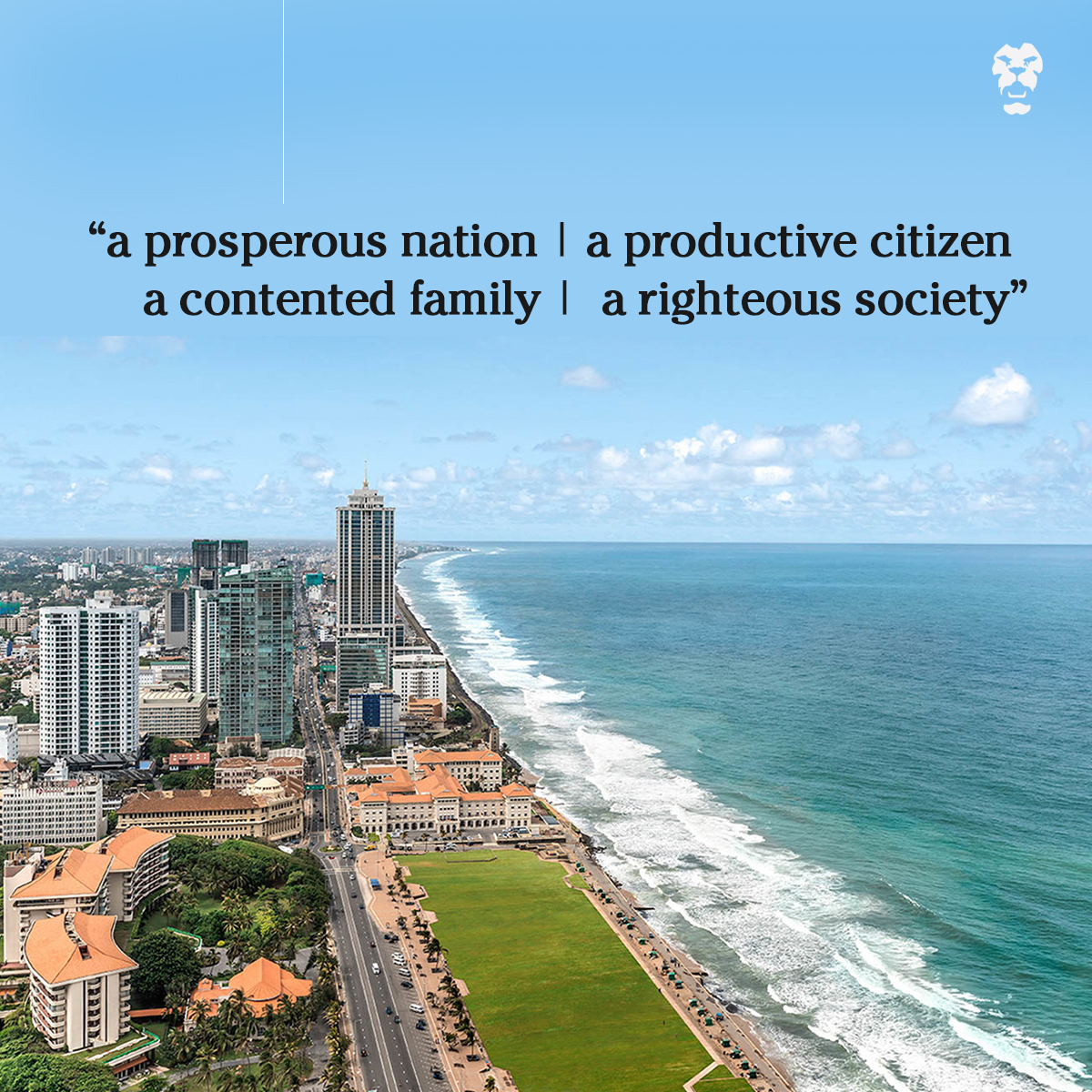
Key Areas Outlined
Unitarianism, majoritarianism and the primacy of Buddhism
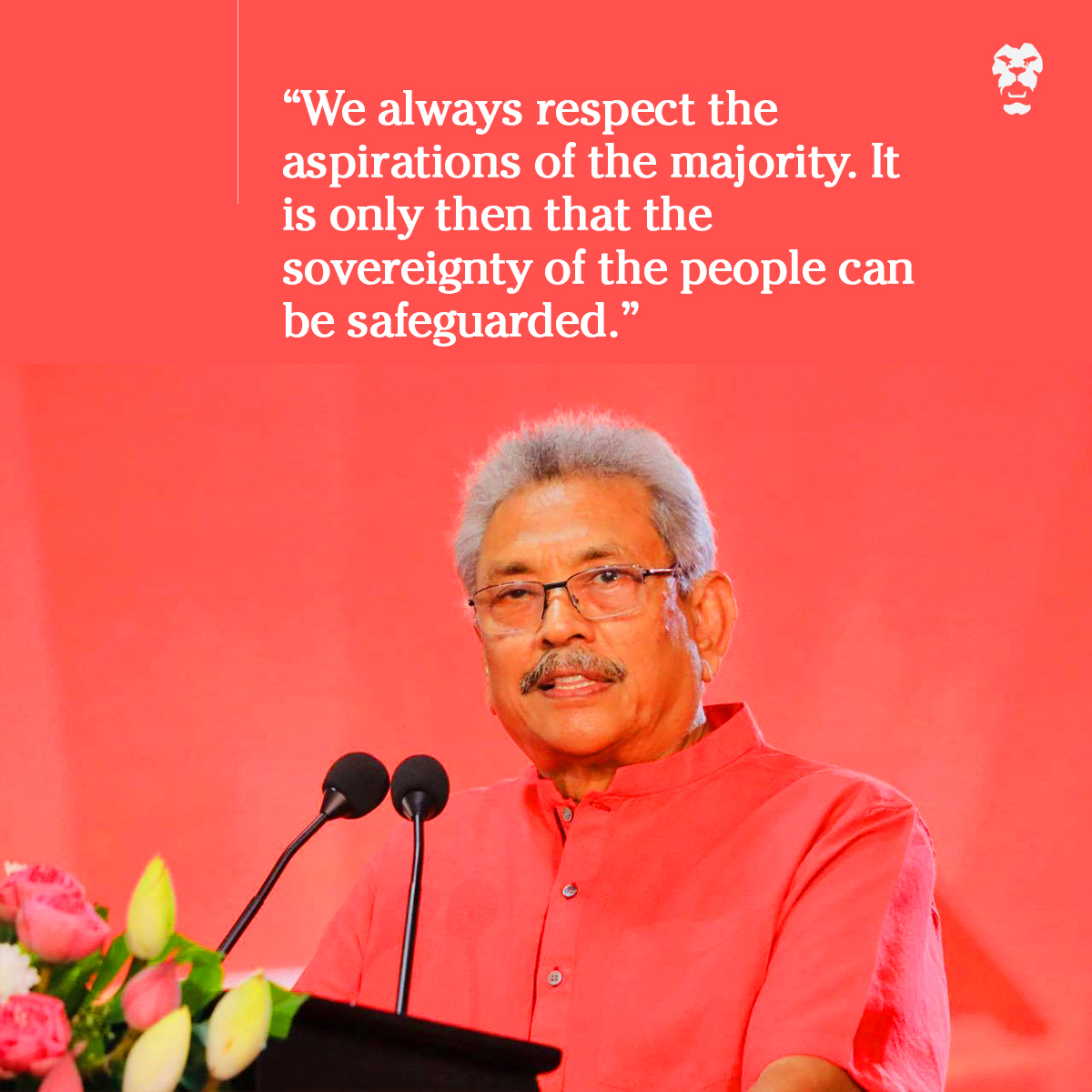
“I [have] pledged to protect the unitary status of the country.”
“I have pledged to protect… and nurture the Buddha Sasana during my tenure.”
Towards these ends, the President said he had:
- set up an advisory council comprising Buddhist monks to seek advice on governance.
- established a Presidential Task Force to protect places of archaeological importance and to preserve Sri Lanka’s Buddhist heritage.
The President also promised all other citizens the freedom to practice their own religions:
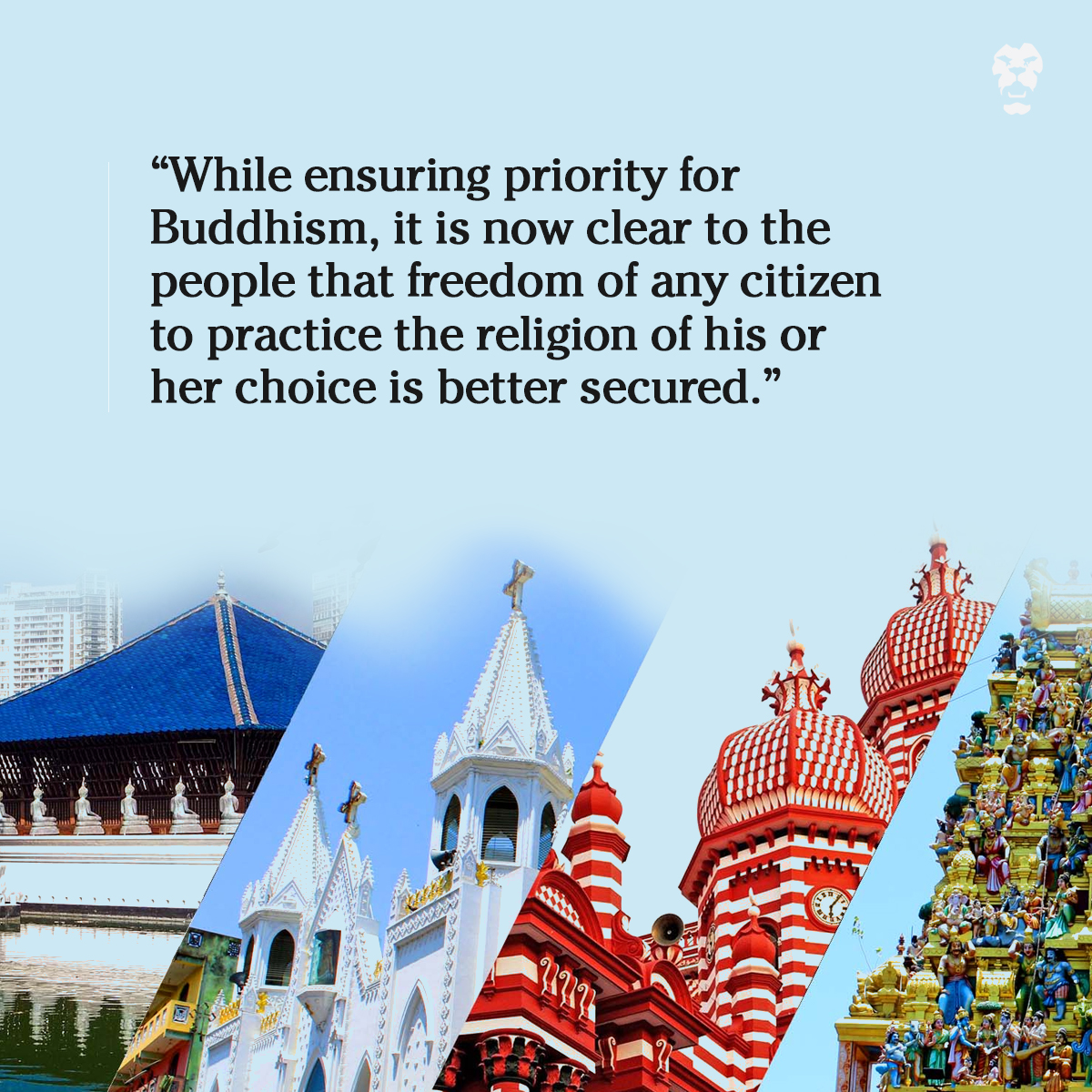
Security
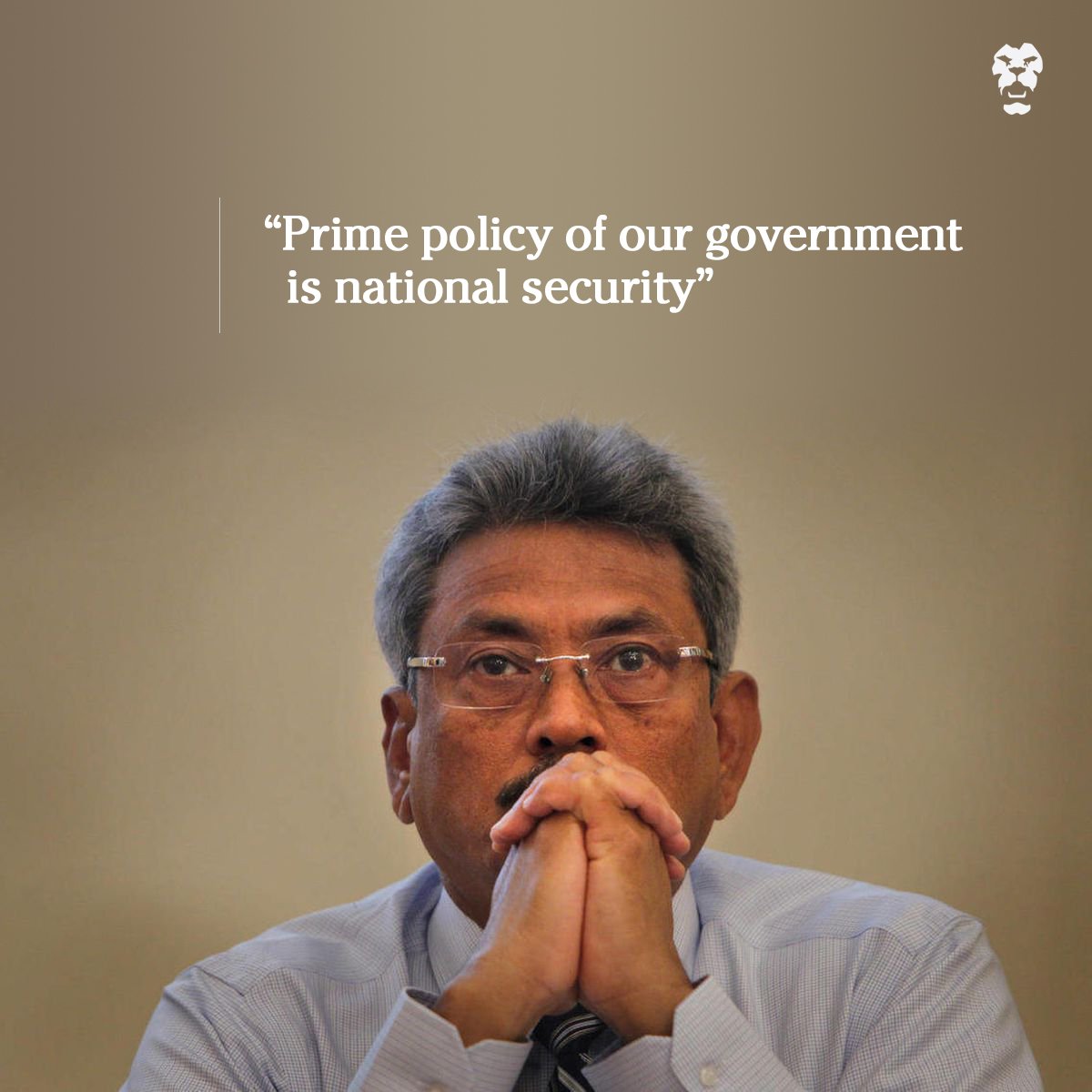
Towards this end, the President said he had:
- restructured the security apparatus and intelligence services, restoring confidence that had been “severely dented due to the 2019 Easter Sunday terror attacks”.
recreated an environment in which any citizen can live freely without any fear for the safety of themselves and their families.
Constitution
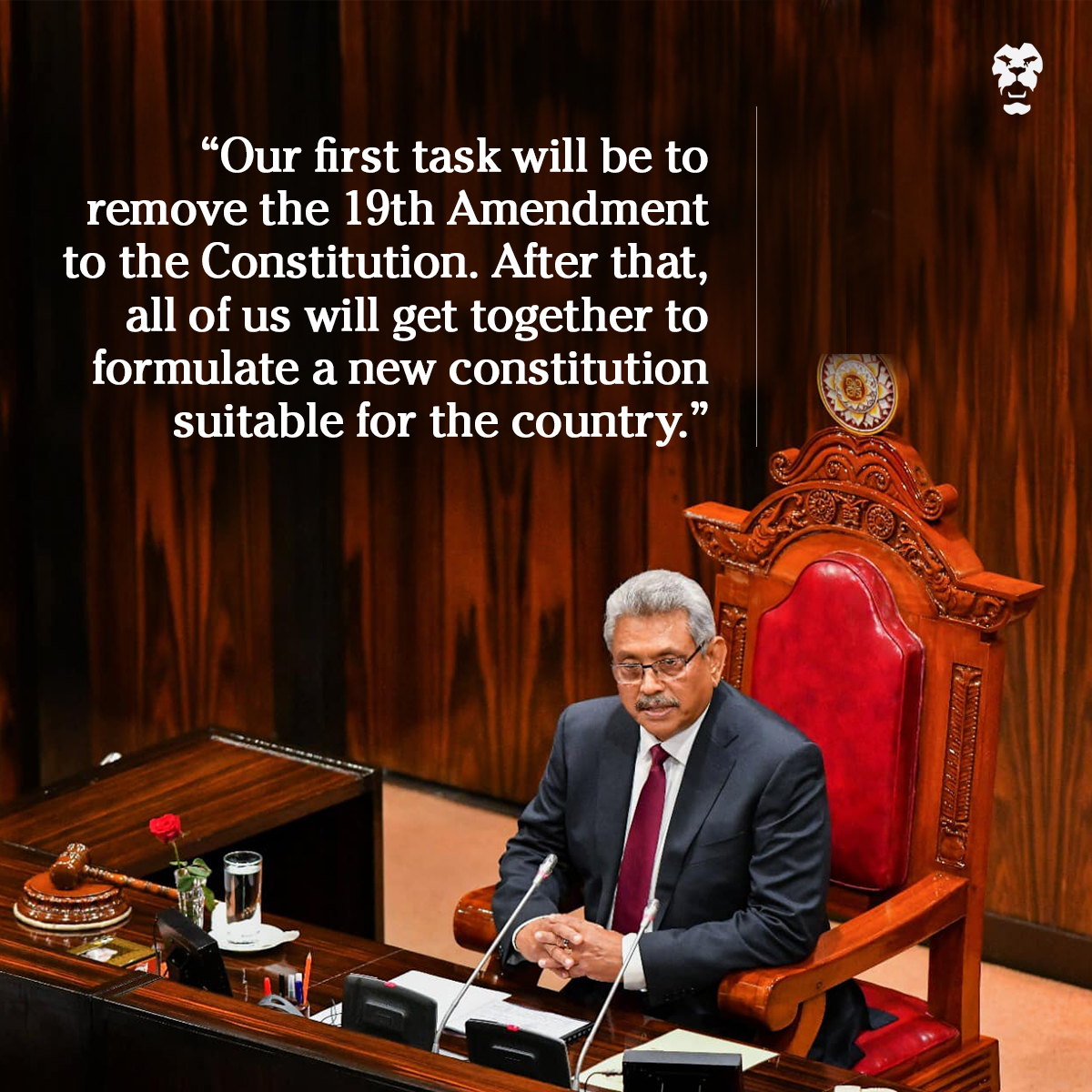
The President said this would ensure:
- the concept of ‘One Country, One Law’ for all people.
- stability that would enable the government to take firm decisions and resist extremist influences.
The President added:
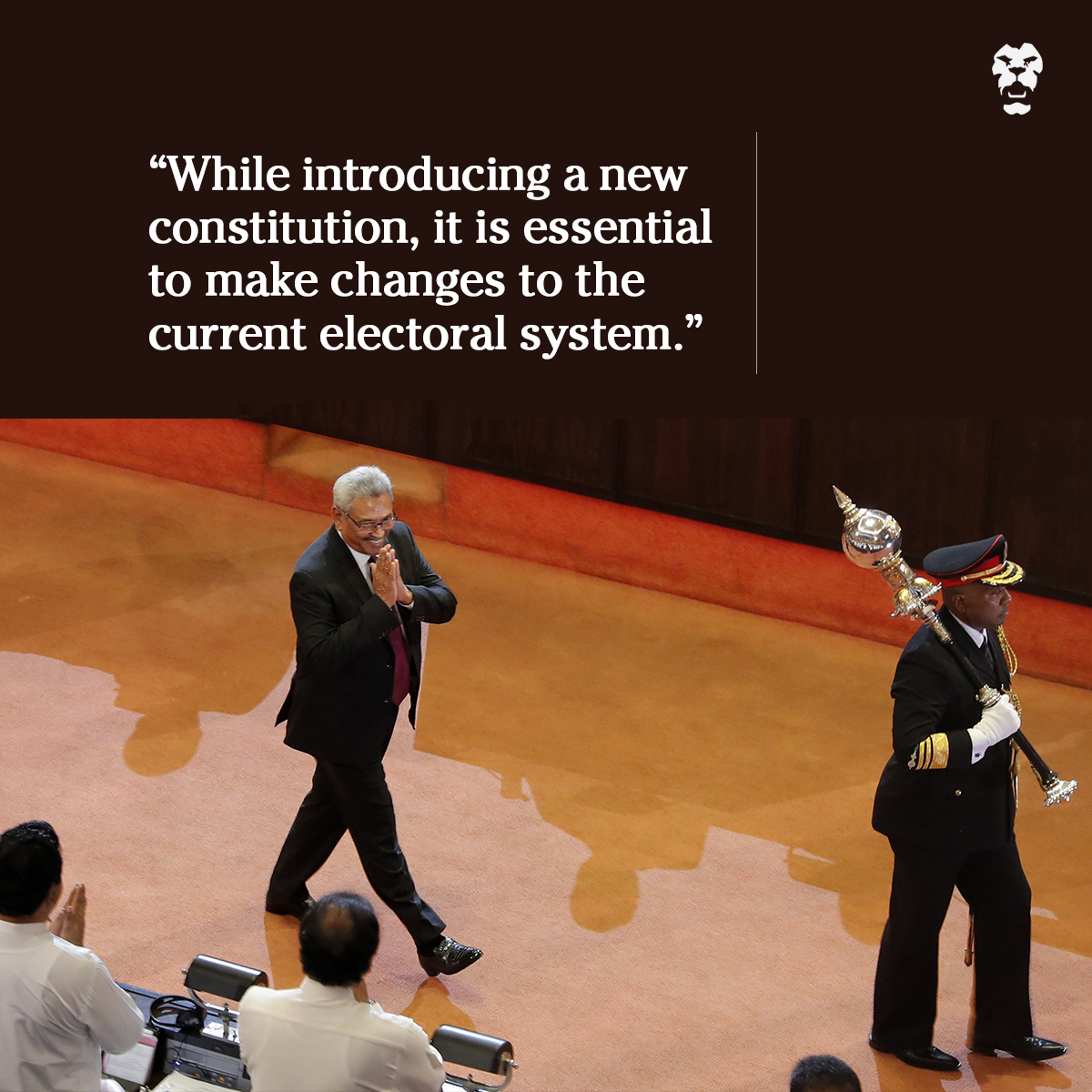
- He said that the changes to the electoral system would ensure stability of the Parliament and people’s direct representation while retaining the salutary aspects of the proportional representation system.
Political Culture
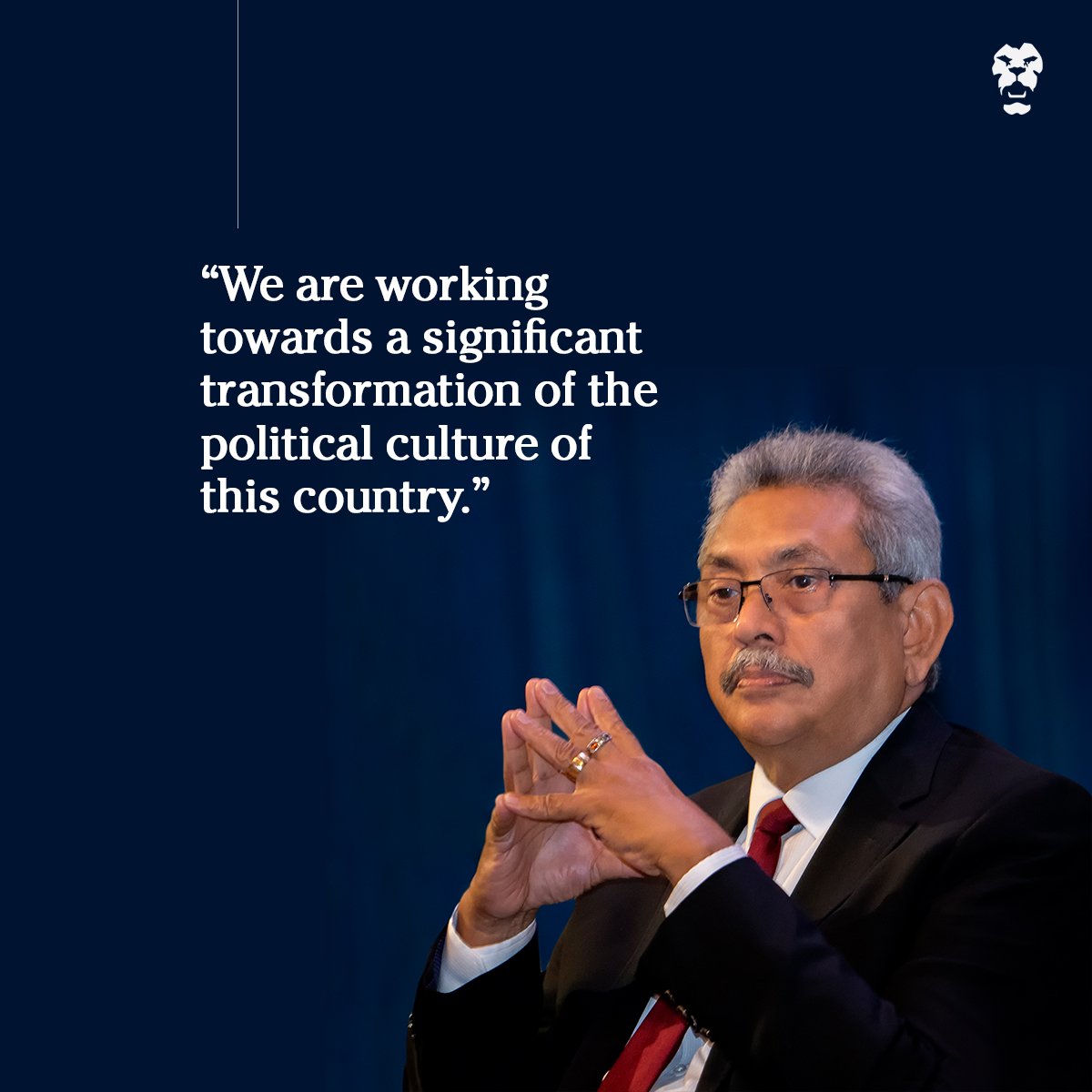
Towards this end the President said he had:
- appointed a team of “professionals, entrepreneurs and academics” instead of “relatives, acquaintances and followers” to examine qualifications of prospective heads of government institutions.
- reminded the people’s representatives that it was their prime responsibility to serve the public, keeping in mind that “all these positions are responsibilities and not privileges”.
Governance
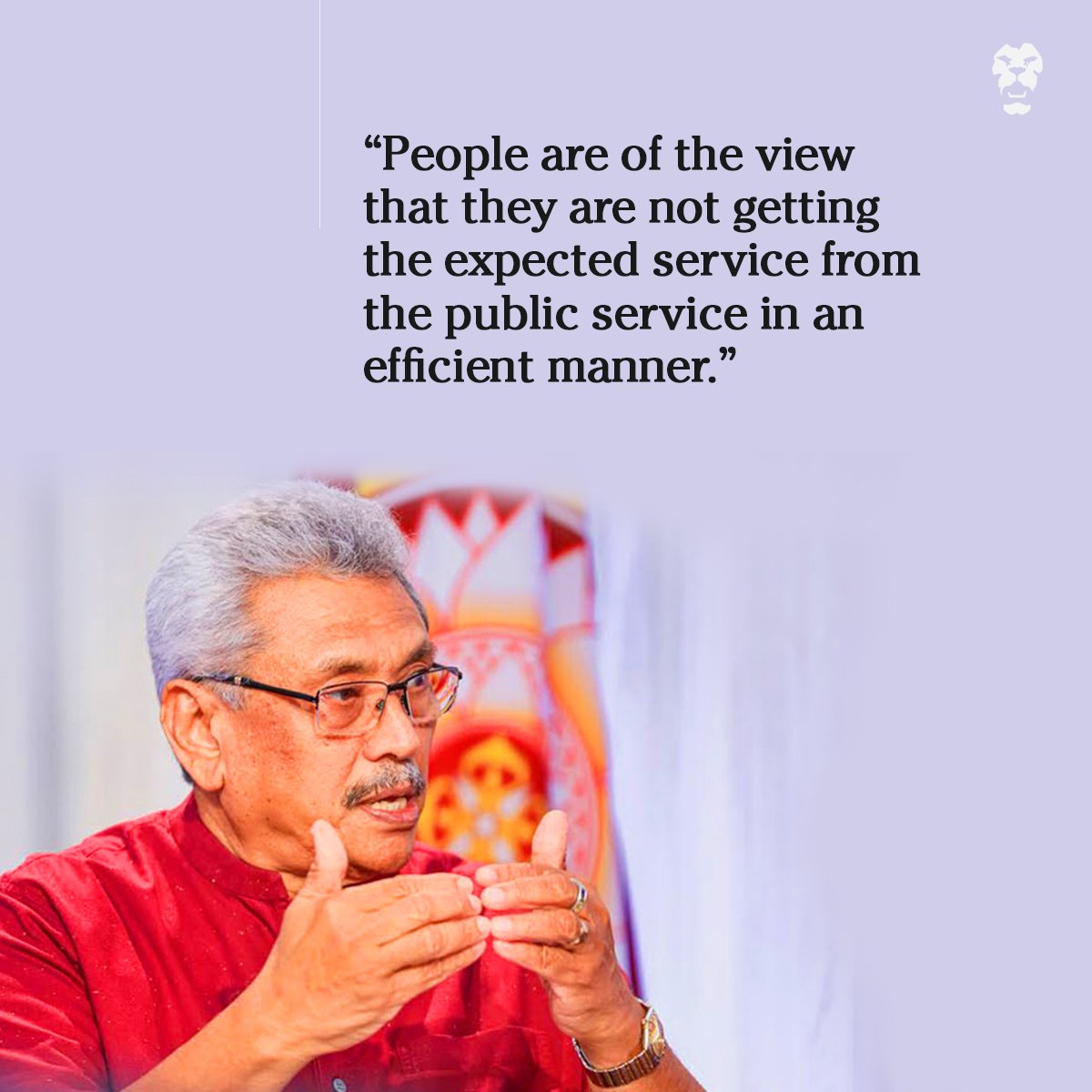
To fix this, the President said:
- he had ensured that the scope and responsibilities of each Ministry and State Ministry were demarcated very clearly.
- that he expected ministers not just to implement policies relating to their own ministries, but also to monitor the functions, activities and efficiency of State Ministries.
- that ministers and state ministers should identify new methods to provide efficient, speedy and convenient services to the public.
- that ministers and state ministers should not neglect the prime duty of going to the people and must visit them often to understand and find solutions to their issues.
Corruption
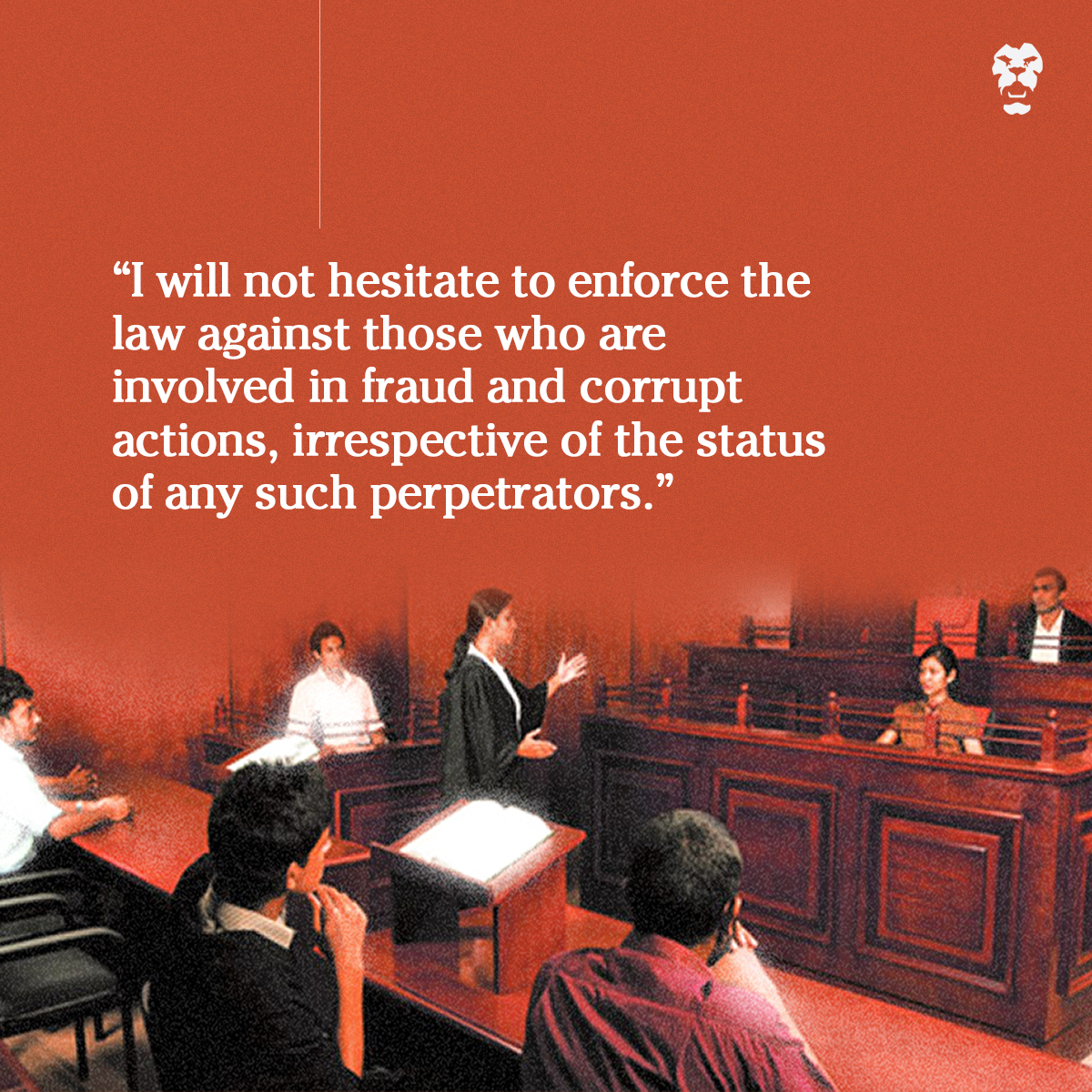
The President said, towards this end, he would:
- consistently review the progress of public sector goals. He said, “If I find any Ministry failing to achieve its set targets, I will not hesitate to effect necessary changes to implement policies of the Government.”
Economy
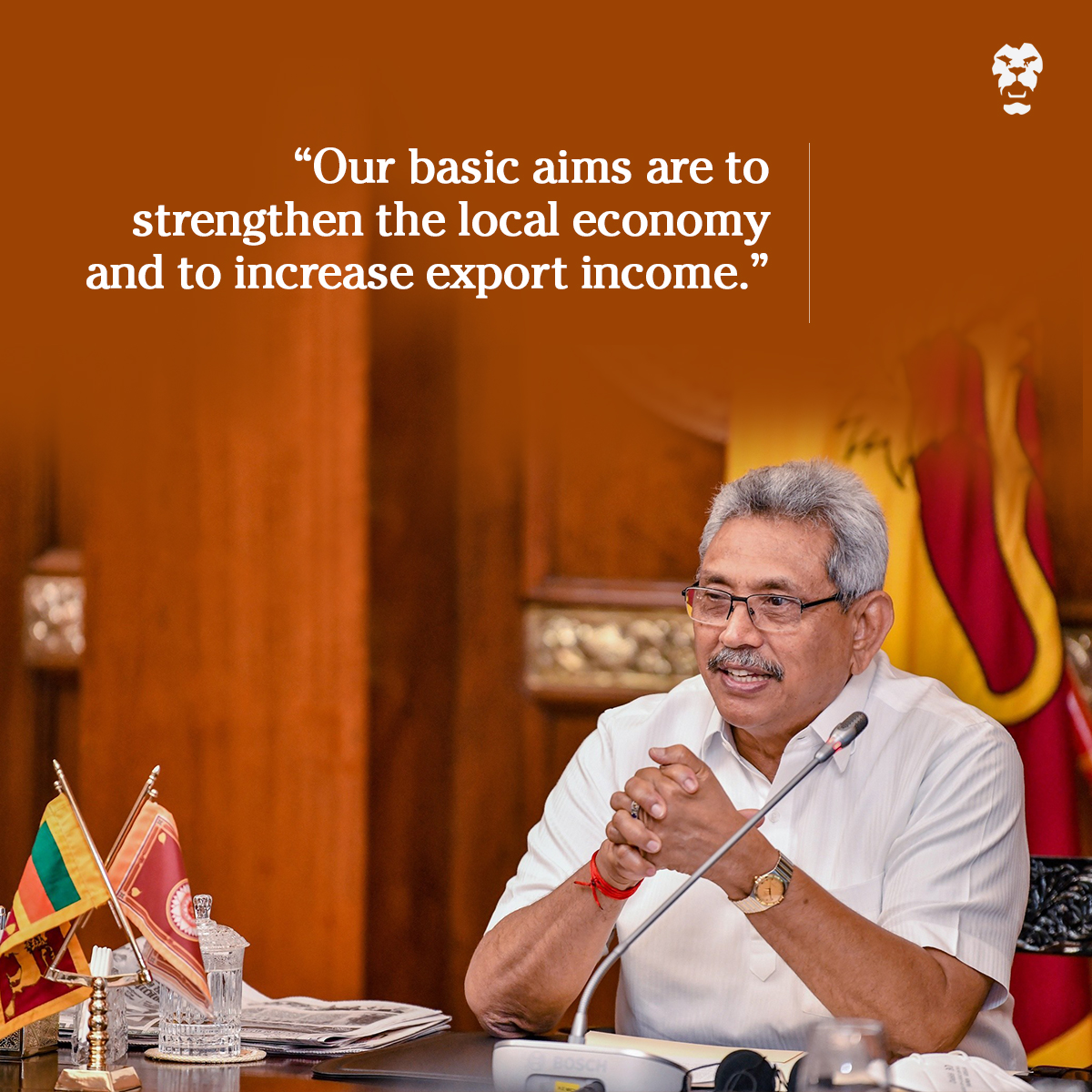
Towards this end, the President said:
“We took measures to build a production economy.”
- Paddy farmers were given a higher guaranteed price for their products.
- Protected local farmers by halting importation of exportable produce.
- Protected local farmers by banning imports of crops that could be grown locally.
- Provided farmers with required fertiliser free of charge.
- Encouraged people to re-cultivate abandoned lands.
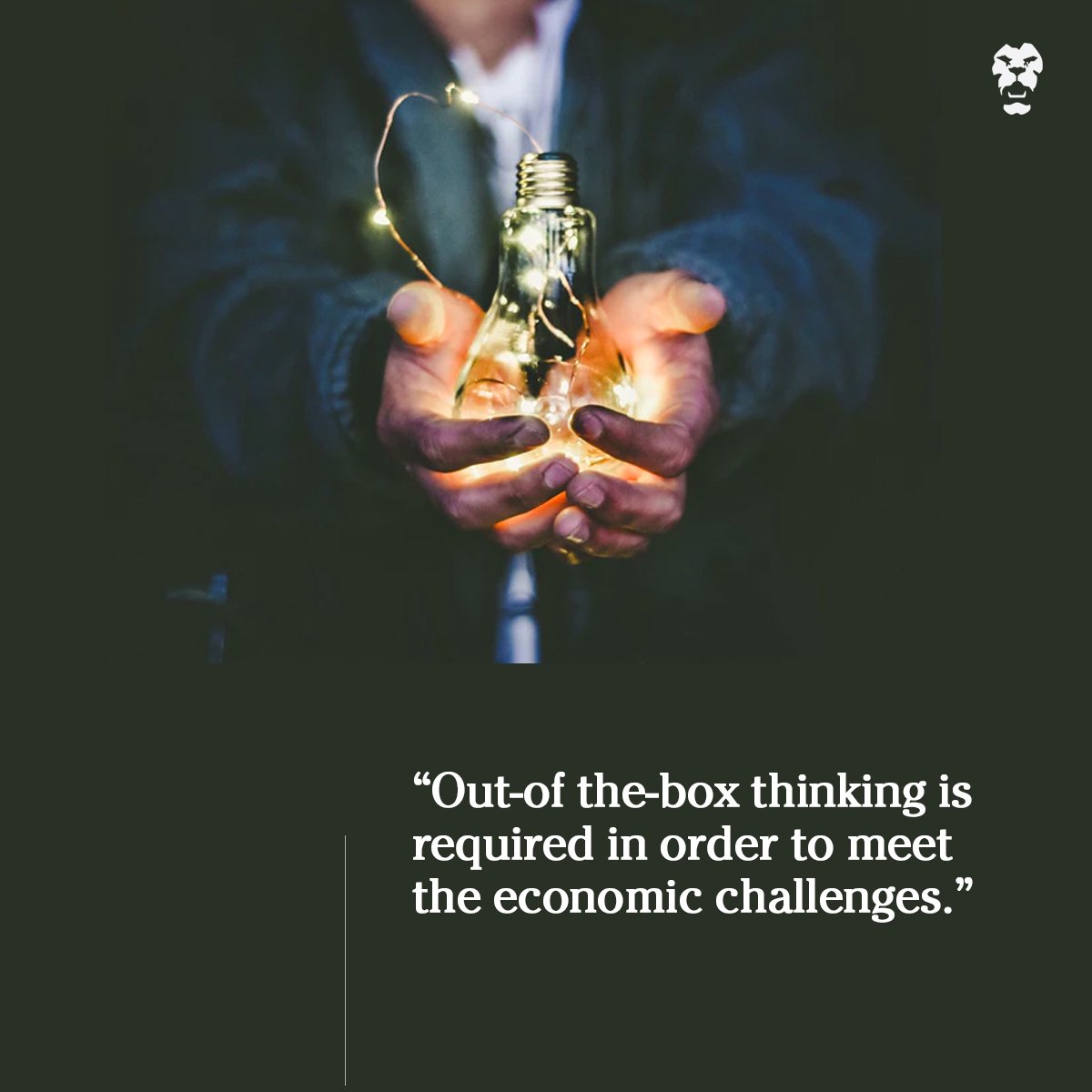
In this regard the President said:
“Currently the income from tea, coconut and rubber industries is not at a satisfactory level.”
Towards this end the government will:
- help develop tea plantations.
- assist small- and medium-scale tea estate owners.
- encourage the export of high-quality tea products and reclaim the global brand name for Ceylon Tea.
- encourage planting of coconut saplings.
- encourage local rubber industrialists to utilise local rubber in order to encourage a reasonable price for rubber.
- stop plantation of palm oil trees.
- promote the production of export crops like pepper and cinnamon.
- provide opportunities for value addition and exportation of agricultural products to generate foreign exchange and stable prices for farmers.
- give special attention when assigning ministers subjects to cover fields such as agriculture, plantations, fisheries, traditional industries and promotion of self-employed job opportunities, which affect most of the people in the country.
Education
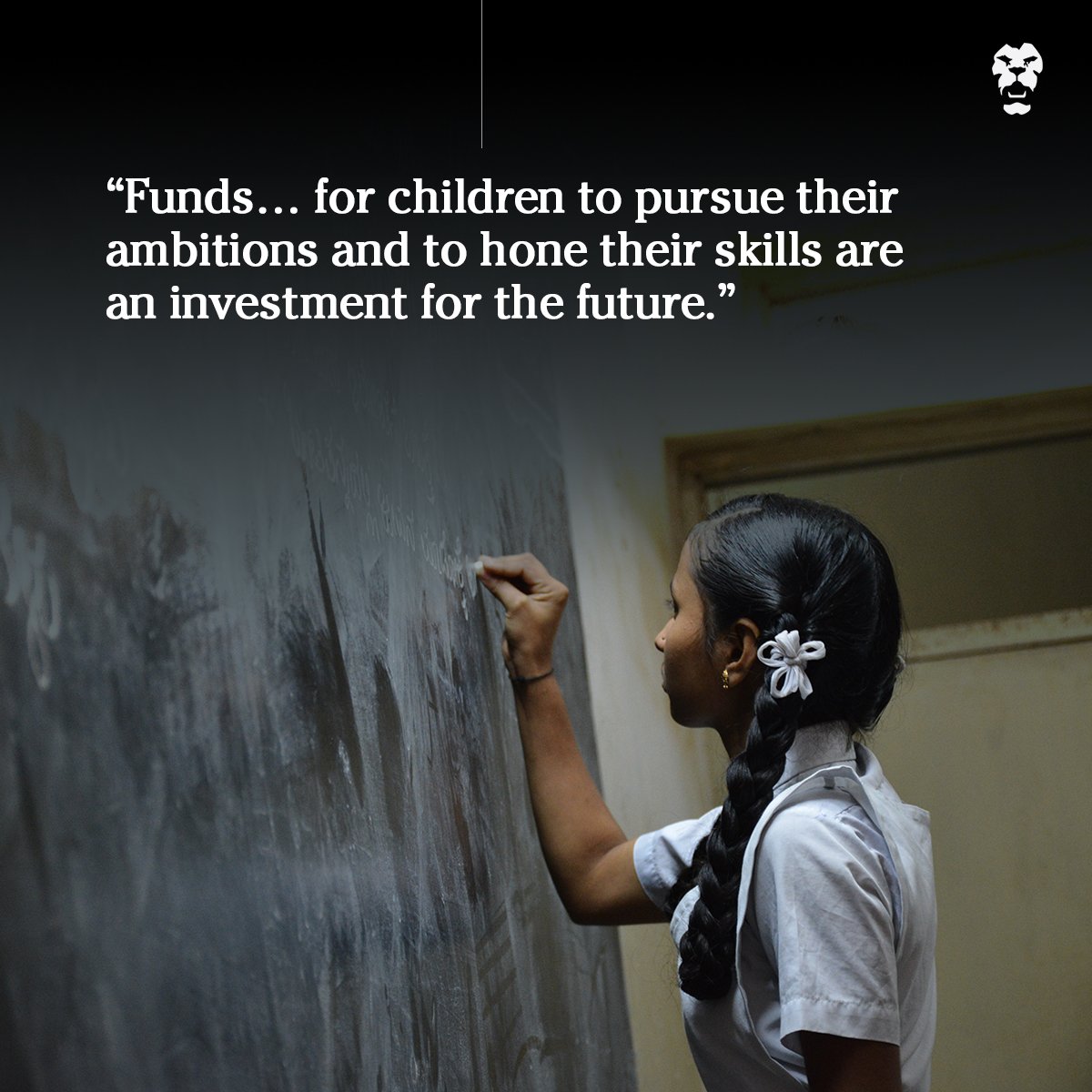
In recognition of this, the President said he:
- had identified human resource development as a priority and placed education under one Ministry and four State Ministries [State Ministry for Preschool, State Ministry for Education Reforms, State Ministry for Skills Development and State Ministry for Dhamma Schools and Bhikkhu Education].
- would meet needs for suitable schools with adequate facilities; address shortages of teachers, laboratories, libraries, sports facilities and facilities to teach science and technical subjects streams.
- would pay special attention to technical education and reforms from Grades 6 – 13.
- increase capacity of universities to allow all students with A/L pass to access university education.
- improve the open university network, distance-learning methods and revise curricula to ensure subjects will contribute to the growth of the economy.
Employment
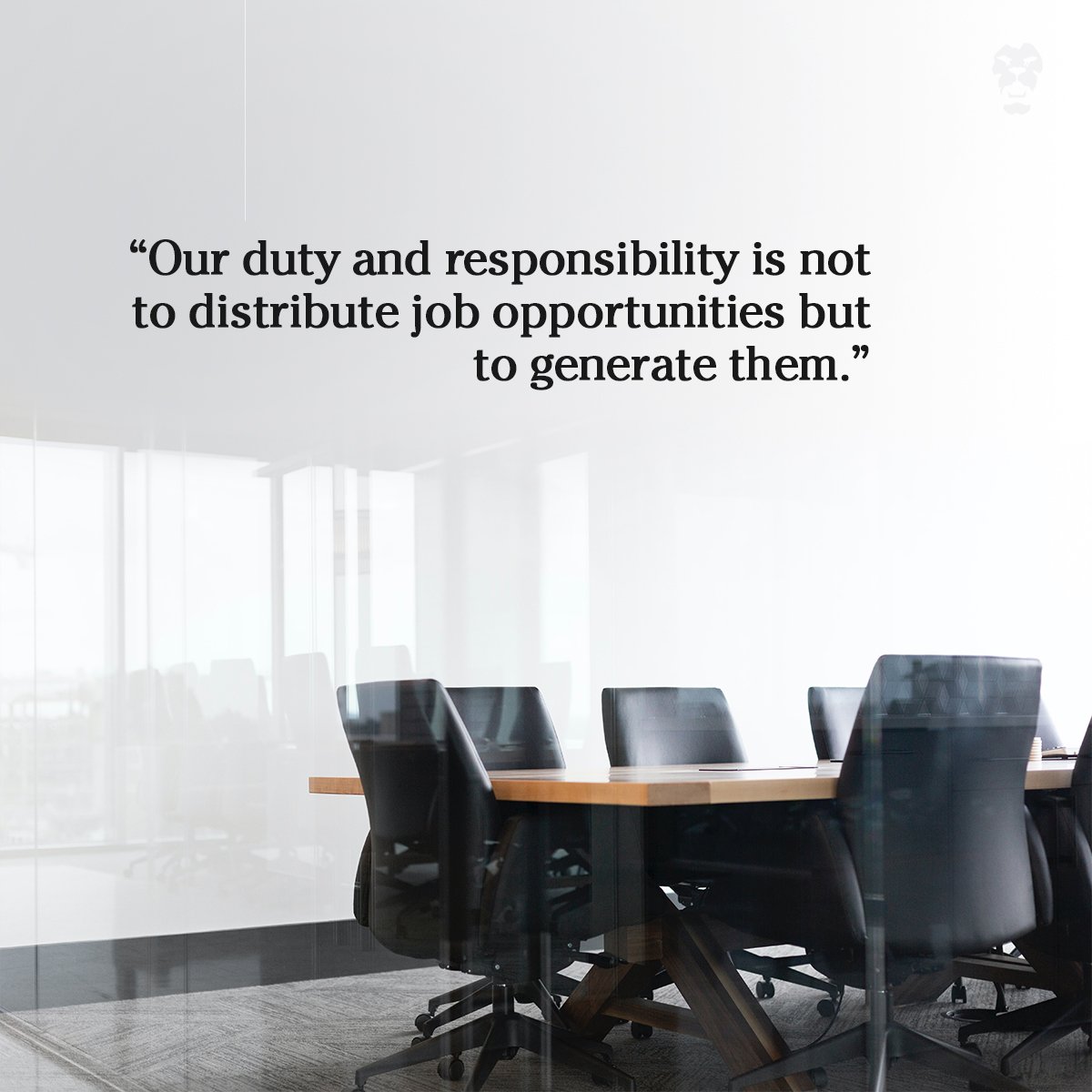
In this regard, the President:
- recognised that unemployment was a major social issue for youth and pledged short- and long-term solutions.
- provided employment to 100,000 from underprivileged families and said plans were in motion to provide employment to 50,000 more.
- pledged that the most disadvantaged and poorest households will have priority in government job placements.
- said he would ensure equal distribution of job opportunities to all provinces.
- asked ministries and state ministries to work together to generate job opportunities.
- said he would promote self-employment and entrepreneurship.
Other
“The Government has paid special attention to the protection of national heritage, culture and our identity as well as the protection and promotion of performing arts and folk arts.”
“[will] protect people against social evils such as the activities of the underworld and the drug menace…“a virtuous and a law-abiding society is emerging as we promised.”
“We will provide them [people who do not possess proper deeds for the lands on which they have lived for many years] with legitimate deeds… without a proper alternative, we will not evict people from their ancestral homes or farmlands.”
“A group of experts… appointed to craft a feasible solution to [the human-elephant conflict]. Separate state ministry… established solely for this purpose because we are aware that this issue needs a sustainable solution.”
“…people across the country suffer from a shortage of drinking water… as a national policy, we will enact procedures to provide drinking water to every part of the country…. we will… rehabilitate tanks and to develop the irrigation system across the country.”
“…cost of electricity is an important factor that impacts the economic development process of the country. Therefore, a separate State Ministry has been set up to promote renewable energy sources.”
“…value adding industries are not yet on par with international standards…[we will] earn a large sum of foreign exchange by adding value to the export of natural resources such as gems and minerals.”
“…development of traditional industries such as batik, local apparel, brass, cane, pottery, furniture, gem and jewellery will… promote self-employment, generate new employment opportunities… build businesses… earn foreign exchange.”
“…eliminate discrepancies in the delivery of free healthcare… [resources and facilities in rural hospitals inadequate]…[will] preserve and promote Ayurvedic and indigenous.”
“medicinal systems…[will] manufacture medicines locally… will eradicate corruption [that]occurs in the importation of medicine…[have appointed] a separate state ministry to manufacture, supply and regulate medicine.”
“…development of [agriculture, plantation, fisheries industries] requires a new approach based on technology…[have appointed ministries]to focus attention on this matter…[will introduce]high quality packaging… proper transport facilities to deliver the best quality produce, minimising wastage…[will]produce high quality seeds locally…[to provide seeds to] farming community…. will increase production of organic fertilizer locally [to produce] toxin free foods… and ensure total organic farming in Sri Lanka [in the next decade].”
“…will… develop dairy and poultry industries.”
“…[we are]targeting massive progress in the fisheries sector. We should halt the importation of fish…will introduce comprehensive programme to provide new technology and equipment to enhance the fisheries sector…. modernise [fisheries harbours] to provide facilities for multi-day fishing boats… build new harbours [if necessary]…. halt plundering of our oceans by unlawful foreign fishing vessels… introduce new technology to develop inland freshwater fisheries industry.”

.jpg?w=600)
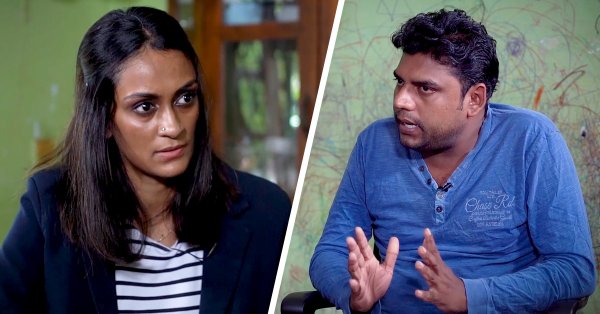





.png?w=600)